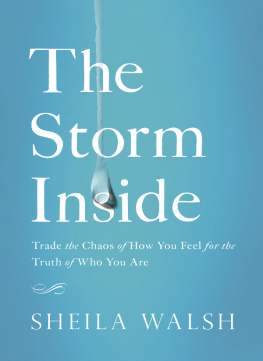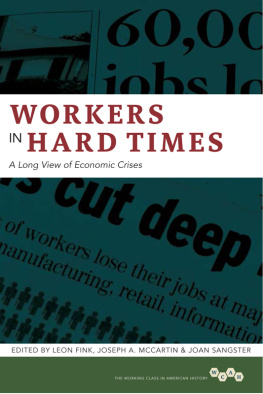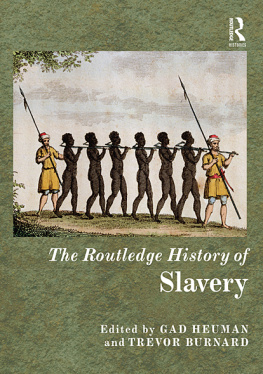Leon F. Litwack - Been in the Storm So Long: The Aftermath of Slavery
Here you can read online Leon F. Litwack - Been in the Storm So Long: The Aftermath of Slavery full text of the book (entire story) in english for free. Download pdf and epub, get meaning, cover and reviews about this ebook. year: 1980, publisher: Vintage, genre: Politics. Description of the work, (preface) as well as reviews are available. Best literature library LitArk.com created for fans of good reading and offers a wide selection of genres:
Romance novel
Science fiction
Adventure
Detective
Science
History
Home and family
Prose
Art
Politics
Computer
Non-fiction
Religion
Business
Children
Humor
Choose a favorite category and find really read worthwhile books. Enjoy immersion in the world of imagination, feel the emotions of the characters or learn something new for yourself, make an fascinating discovery.

- Book:Been in the Storm So Long: The Aftermath of Slavery
- Author:
- Publisher:Vintage
- Genre:
- Year:1980
- Rating:3 / 5
- Favourites:Add to favourites
- Your mark:
- 60
- 1
- 2
- 3
- 4
- 5
Been in the Storm So Long: The Aftermath of Slavery: summary, description and annotation
We offer to read an annotation, description, summary or preface (depends on what the author of the book "Been in the Storm So Long: The Aftermath of Slavery" wrote himself). If you haven't found the necessary information about the book — write in the comments, we will try to find it.
Been in the Storm So Long: The Aftermath of Slavery — read online for free the complete book (whole text) full work
Below is the text of the book, divided by pages. System saving the place of the last page read, allows you to conveniently read the book "Been in the Storm So Long: The Aftermath of Slavery" online for free, without having to search again every time where you left off. Put a bookmark, and you can go to the page where you finished reading at any time.
Font size:
Interval:
Bookmark:
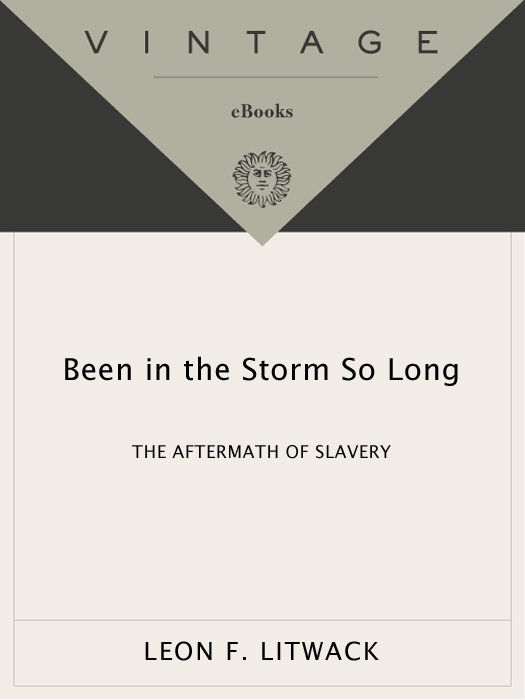
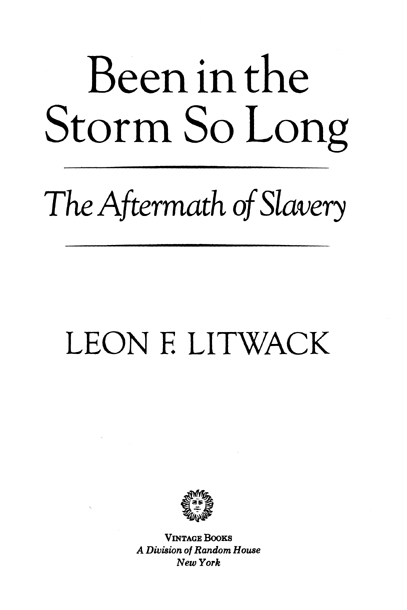
First Vintage Books Edition, August 1980
Copyright 1979 by Leon F. Litwack
All rights reserved under International and Pan-American Copyright Conventions. Published in the United States by Random House, Inc., New York, and in Canada by Random House of Canada Limited, Toronto. Originally published by Alfred A. Knopf, Inc., New York, in May 1979.
Library of Congress Cataloging in Publication Data
Litwack, Leon F.
Been in the storm so long.
1. Afro-AmericansHistory1863-1877. 2. Reconstruction. 3. Southern StatesHistory1865-1877. 4. Southern StatesSocial conditions. 5. Afro-AmericansSouthern StatesHistory.
I. Title.
[E185.2.L57 1979b] 973.0496073 80-11073
eISBN: 978-0-307-77361-6
v3.1
For Rhoda with love

Ive been in the storm so long,
You know Ive been in the storm so long,
Oh Lord, give me more time to pray,
Ive been in the storm so long.
I am a motherless child,
Singin I am a motherless child,
Singin Oh Lord, give me more time to pray,
Ive been in the storm so long.
This is a needy time,
This is a needy time,
Singin Oh Lord, give me more time to pray,
Ive been in the storm so long.
Lord, I need you now,
Lord, I need you now,
Singin Oh Lord, give me more time to pray,
Ive been in the storm so long.
My neighbors need you now,
My neighbors need you now,
Singin Oh Lord, give me more time to pray,
Ive been in the storm so long.
My children need you now,
My children need you now,
Singin Oh Lord, give me more time to pray,
Ive been in the storm so long.
Just look what a shape Im in,
Just look what a shape Im in,
Cryin Oh Lord, give me more time to pray,
Ive been in the storm so long.
NINETEENTH-CENTURY BLACK SPIRITUAL


T O DESCRIBE the end of slavery in the South is to re-create a profound human drama. The story begins with the outbreak of the Civil War, when the Souths quest for independence immediately underscored its dependence on black labor and black loyalty and set in motion a social upheaval that proved impossible to contain. Throughout this devastating war, and in the immediate aftermath, the two races in the South interacted in ways that dramatized not only a mutual dependency but the frightening tensions and ambiguities that had always characterized the peculiar institution. The extent to which blacks and whites shaped each others lives and destinies and were forced to respond to each others presence had never been more starkly apparent. The truth of W. J. Cashs observationNegro entered into white man as profoundly as white man entered into Negro, subtly influencing every gesture, every word, every emotion and idea, every attitudehas never been more poignantly acted out. Under the stress of war, invading armies, and emerging black freedom, pretensions and disguises fell away and illusions were dissolved, revealing more about the character of slavery and racial relationships than many white men and women wished to know or to believe.
The various dimensions of slaverys collapsethe political machinations, the government edicts, the military occupationshould not be permitted to obscure the principal actors in this drama: the four million black men and women for whom enslavement composed their entire memory. For many of them, the only world they knew ended at the boundaries of the plantations and farms on which they toiled; most of them were several generations removed from the African immigrants who had been torn from their homeland and shipped in chains to the New World. The distant voices of Africa still echoed in their music, in their folk tales, in the ways they worshipped God, and in their kinship relationships. But in 1860 they were as American as the whites who lorded over them.
The bondage from which black men and women emerged during and after the Civil War had varied in conditions of living, in degrees of mental and physical violence, and in the character of ownership. But the education acquired by each slave was remarkably uniform, consisting largely of lessons in survival and accommodationthe uses of humility, the virtues of ignorance, the arts of evasion, the subtleties of verbal intonation, the techniques by which feelings and emotions were masked, and the occasions that demanded the flattering of white egos and the placating of white fears. They learned to live with the uncertainties of family life, the drab diet of nigger food, the whippings and humiliations, the excessive demands on their labor, the wiles and changing moods of masters and mistresses, the perverted Christianity of white preachers, and the inhumanities few blacks would ever forgeta spirited slave reduced to insensibility, a father helpless to protect his wife or children, a mother in the forced embrace of the master or his sons. Not only did most of the slaves learn to endure but they managed to create a reservoir of spiritual and moral power and kinship ties that enabled them under the most oppressive of conditions to maintain their essential humanity and dignity.
The slaves came to learn that the choices available to them were sharply constricted, that certain expectations would remain unrealized, that a lifetime could be spent in anticipation and disappointment, that to place any faith in the promises of white men and women or to misinterpret their occasional displays of patronizing affection might result in betrayals and frustrations that were psychologically debilitating. Each generation complied in its own ways with the demands and expectations of those who claimed to own them, sucked whatever joy they could out of their lives and families, and gave birth to still another generation of slaves. But for the black men and women who lived to experience the Civil War, there would be the moment when they learned a complex of new truths: they were no longer slaves, they were free to leave the families they had served, they could negotiate the terms of their future labor, and they could aspire to the same rights and privileges enjoyed by their former owners. It is that momentand the days, months, and years that immediately followedwhich this book seeks to capture: the countless ways in which freedom was perceived and experienced by the black men and women who had been born into slavery and how they acted on every level to help shape their condition and future as freedmen and freedwomen.
To describe the significance of freedom to four million black slaves of the South is to test severely our historical imagination. Perhaps only those who have endured enslavement and racial oppression are capable of fully appreciating the various emotions, tensions, and conflicts that such a dramatic change could provoke. The sources for assessing how black freedom traumatized the white South are abundant, for the war and postwar years produced a deluge of reactions in letters, journals, diaries, and the press; indeed, some whites could talk and write of little else in the aftermath of the war but the dimensions of their defeat and the loss of their chattel. For the slaves, the sources are no less plentiful but far more elusive. Newly freed slaves related their perceptions of freedom to Union soldiers, Freedmens Bureau officers, northern visitors, newspaper reporters, clergymen, missionaries, teachers, and, with somewhat greater caution, to the masters and mistresses who had formerly owned them. More importantly, they acted on their perceptions in ways that could not escape the rapt attention and curiosity of contemporaries eager to ascertain how a once enslaved population would manifest their freedom and whether they could exercise responsibly the prerogatives of free men and women.
Font size:
Interval:
Bookmark:
Similar books «Been in the Storm So Long: The Aftermath of Slavery»
Look at similar books to Been in the Storm So Long: The Aftermath of Slavery. We have selected literature similar in name and meaning in the hope of providing readers with more options to find new, interesting, not yet read works.
Discussion, reviews of the book Been in the Storm So Long: The Aftermath of Slavery and just readers' own opinions. Leave your comments, write what you think about the work, its meaning or the main characters. Specify what exactly you liked and what you didn't like, and why you think so.



